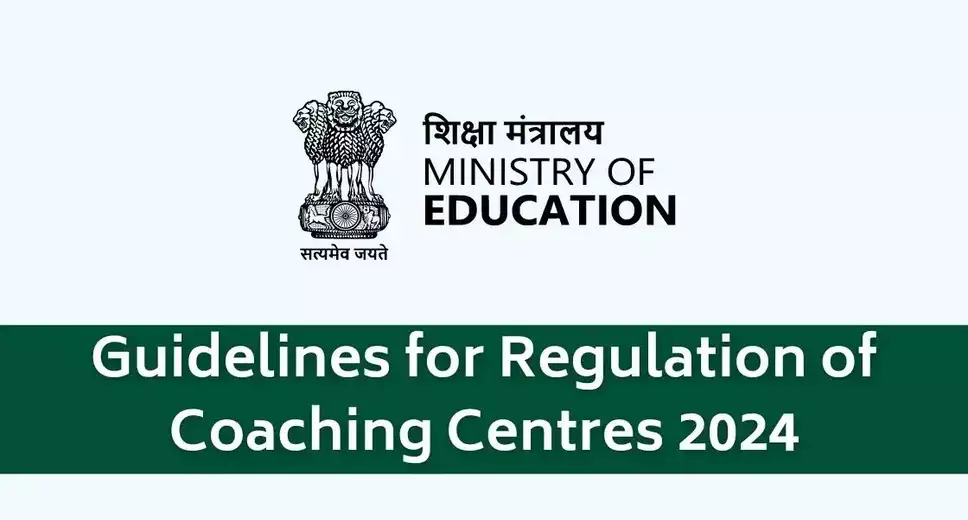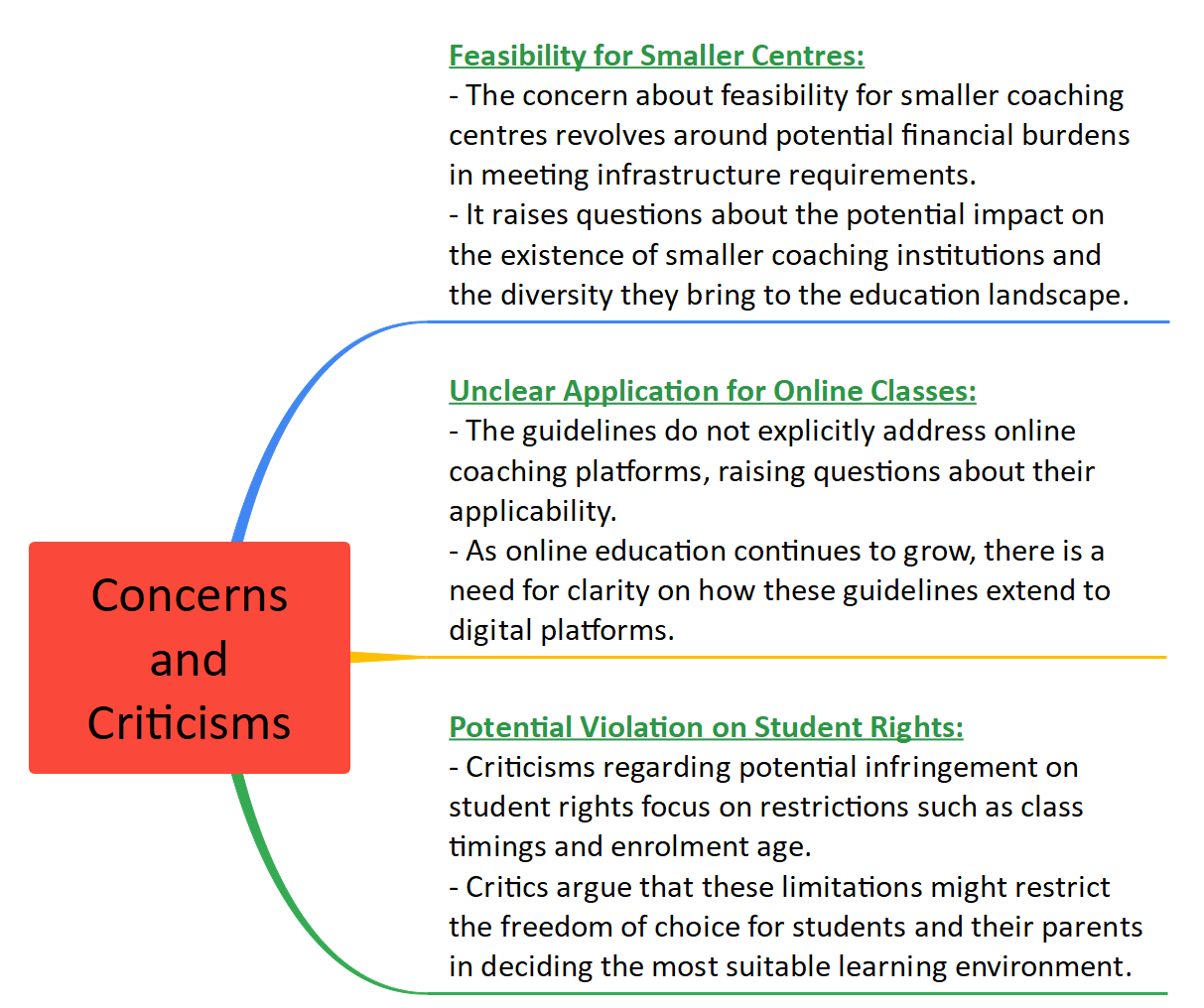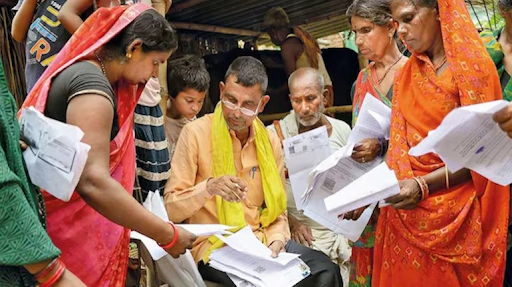Description

Copyright infringement not intended
Picture Courtesy: naukrinama.com
Context: The Union Education Ministry has issued comprehensive guidelines for coaching centres across the country to address concerns related to rising student suicides, high fees, mental pressure, and lack of facilities. The Union Education Ministry has issued new guidelines for coaching centres in India, addressing concerns about student well-being, misleading claims, and infrastructure
Key Highlights of the Guidelines
Conditions for Registration of Coaching Centers
- Qualification of Tutors: Coaching centres are not allowed to engage tutors with qualifications lower than graduation.
- Misleading Promises: Coaching centres cannot make misleading promises or guarantee ranks or good marks to parents/students before enrollment.
- Age Restriction: Students below 16 years of age cannot be enrolled, and enrollment can only occur after the secondary school examination.
- Publication of Advertisements: Coaching centres are prohibited from publishing misleading advertisements regarding the quality of coaching, facilities, or results.
- Registration Requirements: Coaching centres with less than the minimum required space per student must be registered.
- Website Information: Coaching centres must have a website with updated details, including tutor qualifications, courses, duration, hostel facilities, fees, exit and refund policies, and success rates.
- No Classes During School Hours: Coaching classes cannot be conducted during the hours of regular schools or institutions.
Fee Structure
- Free Supply of Materials: Coaching centres must provide a prospectus, notes, and other materials to enrolled students without additional fees.
- Refund Policy: Refund policies are in place for students leaving a course prematurely, including pro-rata fee refunds and hostel fee refunds.
- Fee Increase Restrictions: Coaching centres cannot increase fees during an ongoing course.
Infrastructure Requirements
- Space Allocation: A minimum of one square meter per student during a class/batch is required.
- Safety Standards: Adherence to fire safety codes, building safety codes, and obtaining relevant certifications is mandatory.
- First Aid and Medical Assistance: Coaching centres must have first aid kits, medical assistance, and referral services information displayed.
- Facility Standards: Adequate lighting, ventilation, electrification, CCTV cameras, and security are required.
- Separate Toilets: Provision of separate toilets for males and females within the coaching centre premises.

Weekly Offs
- No Impact on School Attendance: Coaching classes should not impact regular school attendance.
- No Assessments on Weekly Off Days: No assessments or exams are allowed on the day after a weekly off.
- Leave during Festivals: During important festivals, leave should be arranged to allow students to connect with family.
Timings
- Limited Class Hours: Coaching centres cannot conduct classes for more than 5 hours per day.
- Career Options Information: Information about various career options, not just engineering and medical, should be provided.
No False Promises
- No Guarantee of Success: Students and parents must be aware that admission to a coaching centre does not guarantee success in competitive exams.
Mental Health
- Workshops and Sensitization: Coaching centres must conduct periodic workshops on students' mental health in collaboration with mental health professionals.
- Counselling Services: Counselors and psychologists should be involved in providing psychotherapeutic services and addressing mental stress and depression.

Assessment Tests Results
- Confidentiality: Assessment test results should be kept confidential and used for internal analysis.
- Counselling for Deteriorating Performance: Students with declining performance should receive counselling.
Other Considerations
- Location Stability: Coaching centres must conduct coaching only at the registered place and cannot be shifted without prior approval.
- Penalties for Violation: Penalties include fines for offences, with increasing amounts for subsequent violations and revocation of registration for repeated offences.

Conclusion
- The new guidelines signify a comprehensive effort by the Union Education Ministry to regulate the coaching centre industry. They reflect a commitment to safeguarding student interests, promoting ethical practices, ensuring transparency, and addressing broader issues related to student well-being. However, addressing practical concerns and ensuring effective implementation will be crucial for the successful realization of these objectives.
|
PRACTICE QUESTION
Q. With the growing use of AI in personalized learning and assessment, how can regulations ensure the ethical use of technology while navigating issues like algorithmic bias, student data privacy, and the potential for AI to exacerbate existing inequalities?
|









